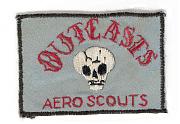There is only one test for a generation of generals: Did the men with stars on their shoulders win or lose their war? No matter the mitigating circumstances and political restrictions military leaders face, there is no "gentleman's C" in warfare. The course is pass-fail.
Despite including many fine combat commanders, our military leadership could fail in Iraq, defeated by terrorists, rough-hewn insurgents and shabby militiamen who understood America's limitations better than the generals did.
The generals point out that they don't control the strategic decisions, that all they can do is to follow orders, that then-secretary of Defense Donald Rumsfeld wouldn't listen to anyone, that Congress undercut the military, that the media's behavior has been pernicious, and that Iraq's political leaders have failed their country.
Each claim is true. Even so, as the Army taught me, "The maximum effective range of an excuse is zero meters." Our generals must shoulder their share of the blame for the mess in Iraq.
Our current system of selecting generals produces George Pattons in bulk. But it hasn't produced another George Marshall, the general who had the ethical force to disagree — respectfully — with his president when victory was at stake...
















Bookmarks